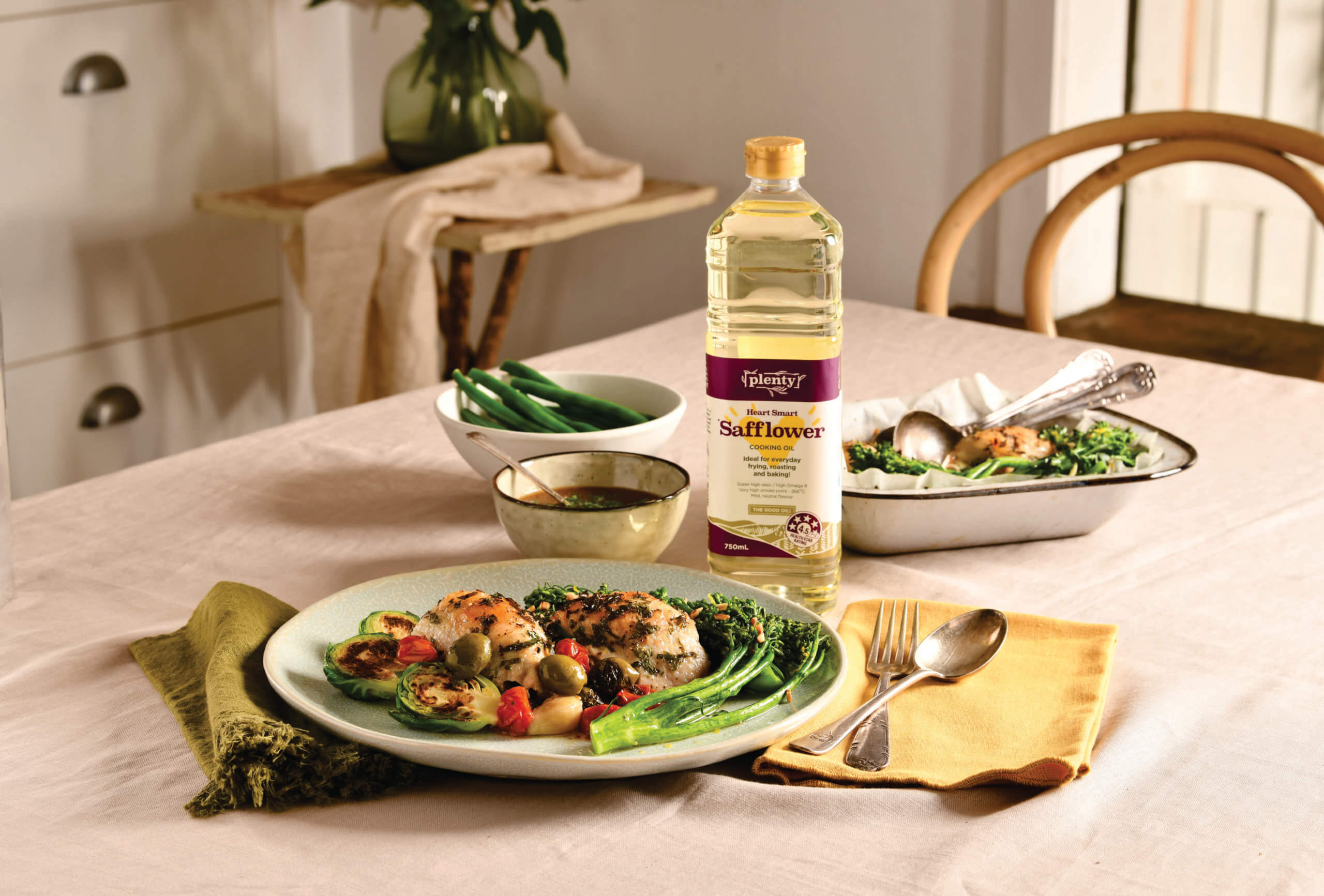
Safflower oil has been praised for its light taste and high smoke point, making it seemingly perfect for barbecues. However, there's more to this oil than meets the eye. Let's dive into why safflower oil is bad for you, especially if you're a barbecue enthusiast.

What is Safflower Oil?
Safflower oil is derived from the seeds of the safflower plant. It's commonly used in cooking and as a base for margarine and salad dressings due to its neutral flavor. With various claims about its health benefits, it's often found in kitchens worldwide.

Why Safflower Oil Is Bad For You
1. High in Omega-6 Fatty Acids
While omega-6 fatty acids are essential for our bodies, an excess can lead to inflammation. Safflower oil is high in these fatty acids, potentially disturbing the balance with omega-3s, leading to chronic inflammation over time.
2. Low in Nutrients
Unlike some oils, safflower oil has minimal nutritional value. It lacks essential vitamins and minerals, providing no significant health benefits.
3. May Lead to Weight Gain
Overconsumption of safflower oil can contribute to an increase in calorie intake, leading to weight gain. It's easy to use too much oil when grilling, adding unnecessary calories to your meals.
4. Potential for Oxidation
Safflower oil can oxidize when exposed to heat, light, or air. This process produces harmful compounds that can damage cells and tissues in the body, increasing the risk of various diseases.
5. Unstable at High Temperatures
Despite its high smoke point, safflower oil can become unstable at high temperatures typical of barbecuing. This instability leads to the formation of toxic compounds, potentially harming your health.

Health Risks of Safflower Oil
Chronic Inflammation
As earlier stated, the overabundance of omega-6 fatty acids can trigger chronic inflammation. This condition is linked to various health issues such as heart disease, diabetes, and arthritis.
Risk of Heart Disease
Although some studies suggest that safflower oil may lower cholesterol, its high omega-6 content can still pose risks. High inflammatory levels associated with omega-6s correlate with heart diseases. Explore more on heart-healthy oils in Healthline.
Potential for Cancer
Long-term exposure to the oxidized byproducts of safflower oil has been associated with an increased risk of cancer. These toxic compounds can damage DNA and other cell structures.
Digestive Issues
Consuming oxidized oils can lead to digestive problems such as bloating, cramping, and diarrhea. Your beloved barbecue could turn into an uncomfortable experience.

Better Alternatives to Safflower Oil
Olive Oil
Olive oil is rich in antioxidants and healthy fats, making it a heart-friendly option for grilling. Its robust flavor adds a delightful twist to your barbecue.
Avocado Oil
With a high smoke point and numerous health benefits, avocado oil is excellent for high-heat cooking. It adds a subtle flavor without compromising on health.
Coconut Oil
Coconut oil's medium-chain triglycerides offer various health benefits. If you're concerned about flavor, refined coconut oil has a neutral taste that's perfect for grilling. Learn more about its uses in How to Cook With Coconut Oil.
How to Store Safflower Oil Safely
If you still choose to use safflower oil, proper storage is crucial. Keep it in a cool, dark place to reduce oxidation. Use airtight containers to limit exposure to air. For more storage tips, visit our guide How to Store Coconut Oil.
Frequently Asked Questions
Is safflower oil safe to use?
While safflower oil can be used safely in moderation, overuse, especially in high-heat cooking like BBQ, can lead to health issues.
Can safflower oil cause weight gain?
Yes, due to its high-calorie content, excessive consumption of safflower oil can contribute to weight gain.
What are the symptoms of consuming oxidized oils?
Symptoms include digestive issues like bloating, cramping, and diarrhea, as well as potential long-term effects such as inflammation and increased cancer risk.
What's the best oil for BBQ?
Olive oil, avocado oil, and refined coconut oil are excellent alternatives. They offer health benefits and perform well in high-heat cooking.
Can I mix safflower oil with other oils?
Mixing oils won't negate safflower oil's potential downsides. It's better to use healthier alternatives entirely.
Where can I buy high-quality oils for BBQ?
Many health food stores and online retailers offer a variety of high-quality oils suitable for barbecuing. Always choose oils with minimal processing for the best health benefits.
Conclusion
While safflower oil may seem like a convenient option for your barbecue needs, its potential health risks outweigh the benefits. Opt for healthier alternatives like olive oil, avocado oil, or coconut oil to enhance both your grill's flavor and your well-being. Happy grilling!
As an Amazon Associate, I earn from qualifying purchases.
.External Reference
For additional insights, read this comprehensive guide on safflower oil's long-term effects.



